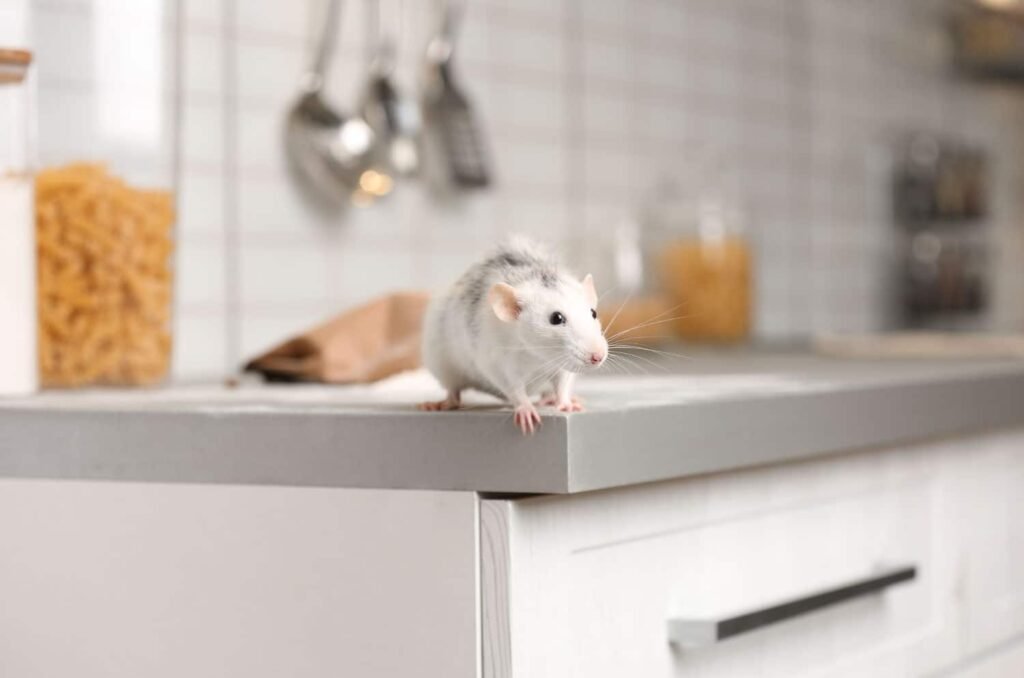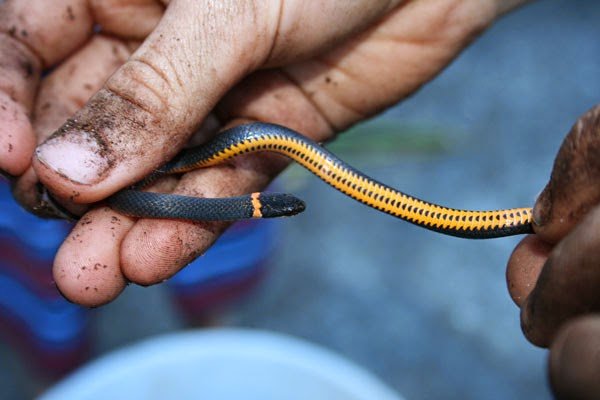Living in Miami, you are no stranger to the warm climate and diverse ecosystem that this beautiful city offers. However, along with its perks, Miami also brings along some unwelcome guests – rodents. With their ability to wreak havoc in your home, it is crucial to have effective methods of rodent control in place. In this article, we will explore proven strategies to keep your home rodent-free in Miami, ensuring a safe and comfortable environment for you and your family.
Understanding Rodent Behavior
Rodents are a common nuisance in many households, and Miami is no exception. It is important to understand the behavior of these furry creatures in order to effectively prevent and control infestations. By knowing what attracts rodents to your home and how they behave, you can take the necessary steps to keep them out.
Common rodent species found in Miami
In Miami, there are several common rodent species that homeowners may encounter. These include rats, mice, and squirrels. Rats, particularly the Roof Rat and Norway Rat, are known to be prevalent in urban areas and can cause significant damage to homes and structures. Mice, such as the House Mouse, are smaller in size but can quickly multiply and infest various areas of your home. Squirrels, although not considered traditional house pests, can become a nuisance when they find their way indoors.
Signs of rodent infestation
It is crucial to be able to identify the signs of a rodent infestation early on to prevent further damage and health risks. Some common indicators include:
- Droppings: Rodent droppings are usually small and pellet-shaped. These can be found near food sources, nesting areas, or along commonly traveled pathways.
- Gnaw marks: Rodents have incisor teeth that continuously grow, leading them to gnaw on various objects to wear them down. Look for chewed-up wires, furniture, and even structural damage.
- Nesting materials: Insulation, shredded paper, fabric, and other soft materials are often used by rodents to create their nests.
- Strange noises: If you hear scratching, scampering, or other unusual sounds coming from the walls, attic, or basement, it may be a sign of rodent activity.
- Unpleasant odors: Rodents can leave behind a distinctive smell, especially if they have died or are nesting in hidden areas of your home.
Why rodents are attracted to homes
Rodents are attracted to homes primarily for three reasons: food, shelter, and water. Your home provides an abundance of these resources, making it an ideal place for them to build nests and thrive. Food sources can include improperly stored food, spilled pet food, and even crumbs left on the floor. Gaps and holes in your home’s exterior provide shelter for rodents, while leaking pipes or open containers of water can provide a much-needed water source. Understanding what attracts rodents to your home is the first step in keeping them out.
Preventing Rodent Entry Points
One of the most effective ways to prevent rodent infestations is to deny them access to your home. Rodents are small and can squeeze through tiny openings, so it is important to seal any potential entry points. Here are some steps you can take:
Sealing cracks and holes in walls and foundations
Inspect the exterior of your home for any cracks or holes in the walls and foundations. Even the tiniest opening can be an invitation for rodents to enter. Use a high-quality caulk or sealant to seal these gaps, ensuring that there are no entry points left for the pesky critters.
Installing door sweeps and weatherstripping
Another vulnerable area where rodents can enter is underneath exterior doors. Install door sweeps to cover the gap between the bottom of the door and the threshold. Weatherstripping can also be applied around doors and windows to keep rodents from slipping through small openings.
Repairing damaged screens and vents
Screen doors and windows with tears or holes can be an easy entry point for rodents. Inspect and repair any damaged screens to prevent them from gaining access to your home. Similarly, ensure that vents are properly screened or covered to prevent rodents from entering through these openings.
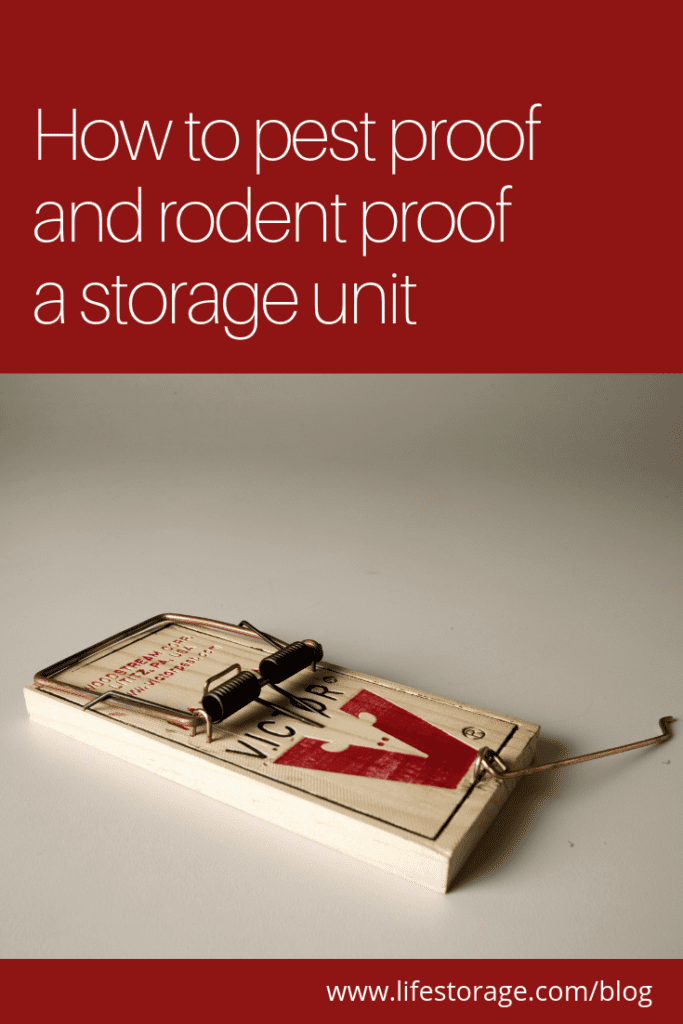

Maintaining a Clean Environment
Rodents are attracted to homes that provide easy access to food and shelter. By maintaining a clean and clutter-free environment, you can make your home less appealing to these unwanted guests. Here are some tips to help you achieve a rodent-free living space:
Properly storing and disposing of food
Rodents have an exceptional sense of smell and can detect even the tiniest food particles. Properly store food in airtight containers, and avoid leaving food out on counters or in open packages. Additionally, ensure that garbage cans are tightly sealed and regularly emptied to remove potential food sources.
Regularly cleaning and decluttering
Rodents need places to hide and nest, so it’s important to keep your home clean and free of clutter. Regularly vacuum, sweep, and mop to remove crumbs and other food debris. Decluttering your living spaces will also eliminate potential nesting sites for rodents.
Securing garbage cans and compost bins
Garbage cans and compost bins are a treasure trove for hungry rodents. Make sure your garbage cans have tight-fitting lids and are stored away from your home’s exterior. If you have a compost bin, use a secure, rodent-proof container and avoid adding any food scraps that may attract unwanted guests.
Using Natural Repellents
If you are looking for more natural alternatives to deter rodents, there are a few methods you can try. While these may not be as effective as professional treatments, they can be a helpful supplement to your rodent control efforts. Here are some natural repellents you can use:
Peppermint oil as a deterrent
Rodents dislike the strong scent of peppermint oil, making it a potential deterrent. Soak cotton balls in peppermint oil and place them in areas where rodents are likely to enter or nest. Refresh the cotton balls regularly to maintain the potent scent.
Ammonia-soaked cotton balls
Similar to peppermint oil, the smell of ammonia is known to deter rodents. Soak cotton balls in ammonia and place them in areas where rodents may frequent. Be cautious when using ammonia, as it can be harmful to humans and pets if used in excessive amounts.
Planting rodent-repelling herbs
Certain plants are known to have repellent properties against rodents. Planting herbs such as mint, lavender, and sage around the perimeter of your home can help discourage rodents from approaching. These plants not only add a pleasant aroma to your yard but also provide a natural barrier against potential infestations.
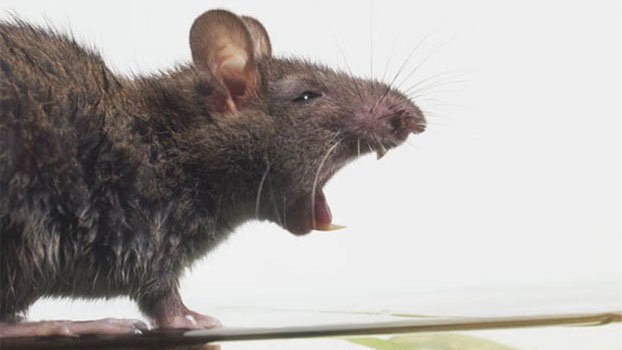

Trapping Rodents
If you have identified a rodent infestation in your home, trapping can be an effective method to control the population. Here are some considerations when trapping rodents:
Types of traps suitable for different rodent species
Different rodent species may require different types of traps for effective capture. Snap traps are commonly used for mice and rats, while live traps can be used for squirrels and other larger rodents. It is important to select the appropriate trap size and style to ensure successful trapping.
Proper trap placement and baiting
To increase the chances of trapping rodents, proper trap placement is crucial. Place the traps along walls or in areas where rodents are likely to travel. You can also use nesting materials or small amounts of food as bait to attract the rodents to the traps.
Safe and humane disposal of trapped rodents
Once you have successfully trapped rodents, it is important to handle them safely and humanely. Wear gloves and avoid direct contact with the trapped rodents to minimize potential health risks. Release live-trapped rodents far away from your home in an appropriate outdoor location. If using snap traps, dispose of the rodents in sealed bags and place them in outdoor garbage bins.
Calling in Professionals
While there are numerous DIY methods for rodent control, sometimes it’s best to seek the help of professionals. Here are some instances where professional rodent control services may be necessary:
When to seek professional rodent control services
If your rodent infestation persists despite your best efforts, it may be time to call in the experts. Professional pest control companies have the knowledge and experience to effectively assess and treat your rodent problem.
Choosing a reputable pest control company
When selecting a pest control company, it is important to choose a reputable and licensed provider. Do your research, read customer reviews, and compare prices before making a decision. A reliable company will offer a thorough inspection, outline treatment options, and provide ongoing monitoring and follow-up.
Understanding treatment options and pricing
Professional rodent control companies offer a variety of treatment options to suit your specific needs. They may use techniques such as trapping, baiting, or chemical treatments. It is essential to ask questions and understand the treatment process, including any potential risks or side effects. Inquire about pricing and ensure that you have a clear understanding of what is included in the service.


Rodent-Proofing Your Yard
To further reduce the risk of rodent infestations, it is important to take measures to rodent-proof your yard. By eliminating attractants and creating barriers, you can make your outdoor space less appealing to rodents. Here are some tips for rodent-proofing your yard:
Clearing debris and overgrown vegetation
Rodents love to hide in cluttered areas, so it’s important to keep your yard tidy. Regularly remove debris, such as piled-up leaves or branches, and clear overgrown vegetation. By creating an open and well-maintained yard, you discourage rodents from taking up residence.
Securing bird feeders and pet food
Bird feeders and pet food can be a magnet for rodents, so it’s important to take precautions. Keep bird feeders away from your home and use feeders that are designed to deter rodents. When feeding pets outdoors, avoid leaving food unattended and store pet food in sealed containers when not in use.
Using repellent plants in landscaping
Just as certain herbs can repel rodents indoors, there are plants that can serve the same purpose in your yard. Consider planting daffodils, marigolds, or hyacinths, as these flowers are known to deter rodents. Additionally, mint, lavender, and sage can be planted around the perimeter of your yard as a natural barrier.
Rodent-Proofing Your Attic
Rodents often seek shelter in attics, where they can go unnoticed for extended periods of time. To prevent rodents from taking up residence in your attic, follow these steps:
Inspecting for entry points and insulation damage
Begin by inspecting your attic for any potential entry points. Look for holes, cracks, or gaps in the walls, roof, and eaves. In addition, check the insulation for signs of damage or nesting activity. Identifying these areas will help you determine where to focus your rodent-proofing efforts.
Sealing gaps around vents and openings
Use wire mesh or steel wool to cover any gaps around vents, pipes, or other openings in the attic. These materials are difficult for rodents to chew through and can effectively block their entry. Seal any larger holes or gaps with caulk or expandable foam insulation.
Installing mesh barriers and wire screens
For larger openings, such as crawl space entrances or ridge vents, install mesh barriers or wire screens. These barriers will allow proper ventilation while preventing rodents from entering your attic. Ensure that the mesh or screen is securely fastened to prevent gaps or openings.
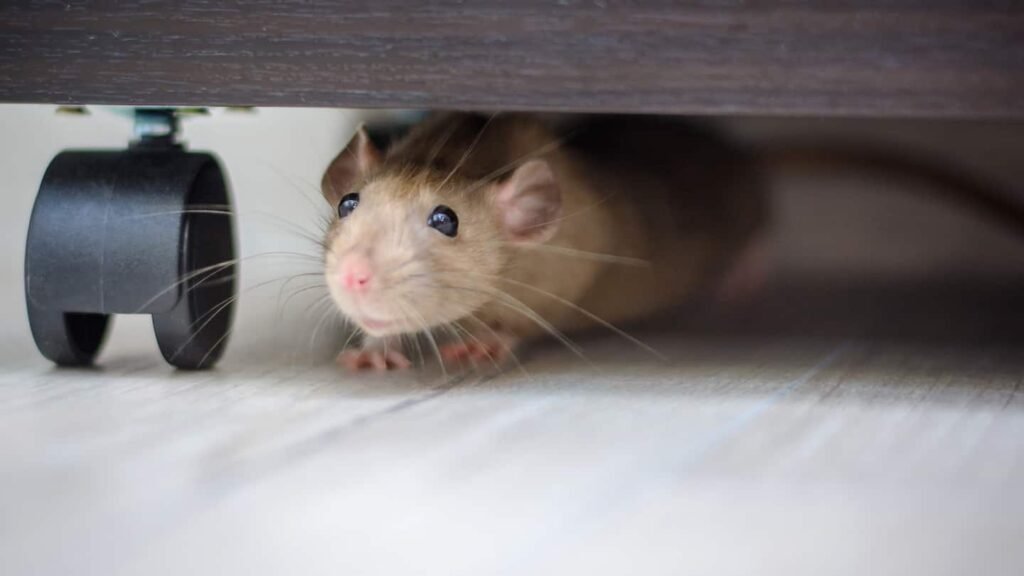

Rodent-Proofing Your Basement
Basements are often damp and dark, making them an attractive hiding place for rodents. To protect your basement from infestations, consider the following steps:
Monitoring for moisture and leaks
Rodents are attracted to damp environments, so it’s important to keep your basement dry. Regularly inspect for any signs of water leaks or moisture buildup. Address any plumbing issues or water damage promptly to prevent rodents from being lured in.
Sealing cracks and crevices
Inspect the walls, floors, and foundation of your basement for cracks and crevices that could serve as entry points for rodents. Use a high-quality sealant or caulk to fill these gaps and prevent easy access for rodents.
Using storage containers instead of cardboard boxes
Cardboard boxes are easily chewed through by rodents, providing them with a cozy nesting material. Instead, use sturdy plastic storage containers with secure lids to store your belongings. This will not only protect your items but also make it less appealing for rodents to make your basement their home.
Rodent-Proofing Your Garage
Garages often serve as prime nesting spots for rodents due to the abundance of hiding places and potential food sources. To keep rodents out of your garage, follow these preventive measures:
Sealing garage doors and windows
Inspect the garage doors and windows for any gaps or openings. Weatherstripping can be used to seal gaps along the edges of the doors, while caulk or sealant can be used to seal gaps around windows. Make sure the doors and windows close tightly to prevent rodents from squeezing their way in.
Storing firewood away from the garage
Rodents love to nest in piles of firewood, so it’s important to store it away from the garage. Keep firewood at least 20 feet away from your home’s exterior and store it off the ground. This will minimize the chances of rodents using the woodpile as a cozy nesting spot.
Using wire mesh to cover ventilation openings
Ensure that ventilation openings in the garage, such as those for the dryer or exhaust fan, are covered with wire mesh. This will allow proper ventilation while preventing opportunistic rodents from gaining access to your garage. Regularly inspect the mesh to ensure it remains intact and free from any gaps.
By understanding rodent behavior, taking preventive measures, and implementing effective rodent-proofing techniques, you can ensure a rodent-free home and yard. With a clean and well-maintained living space, along with the help of professionals if needed, you can keep these unwanted guests at bay and enjoy a pest-free environment. Remember, patience and persistence are key when it comes to rodent control, so stay vigilant and proactive in your efforts.
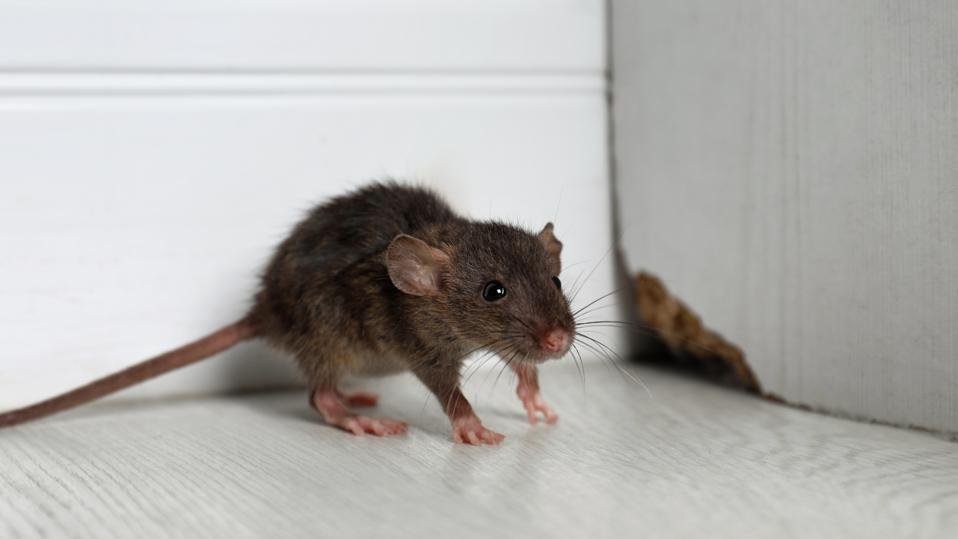

Your Expert in Animal Control and Extermination. Trust our experience for humane, effective pest management, protecting your property and ensuring peace of mind with Michael S.


